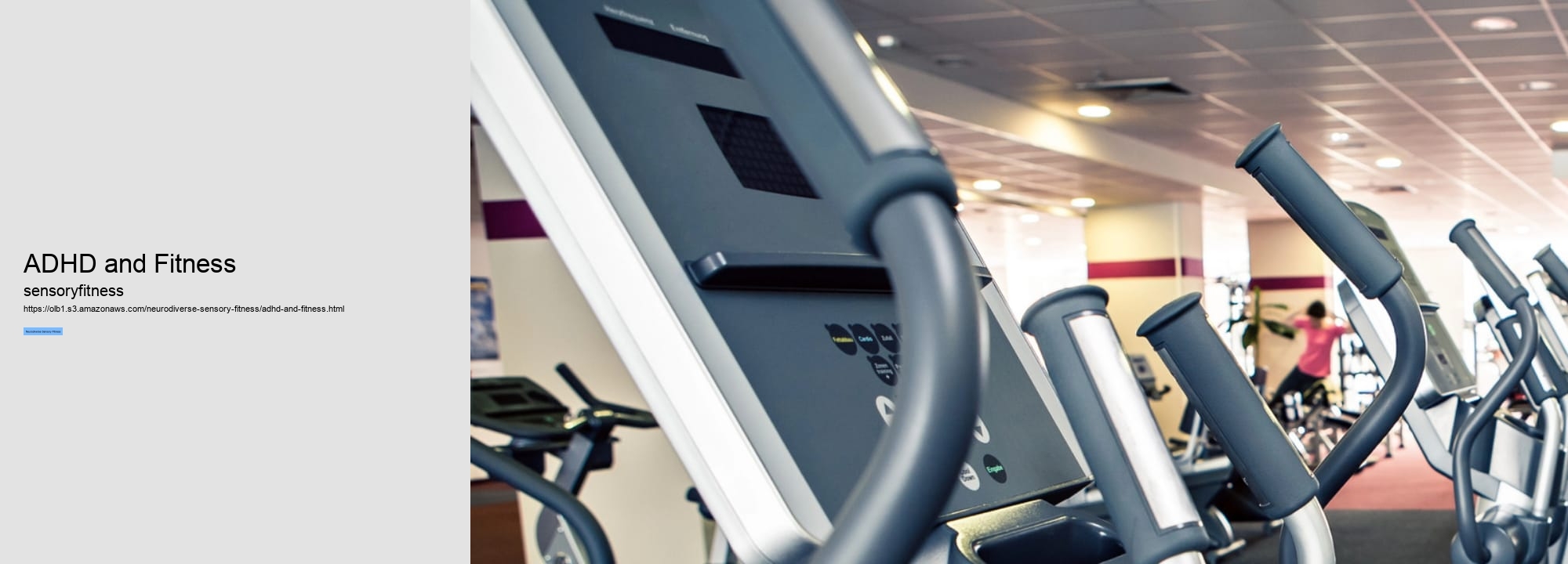

Pay attention to the sights, sounds, smells, and textures around you – notice the vibrant colors of flowers, listen to birds chirping overhead, inhale the fresh scent of pine trees. In addition to practicing mindfulness and spending time in nature, there are other simple ways you can enhance your sensory awareness for a healthier lifestyle. Try experimenting with new cuisines or cooking techniques to stimulate your taste buds. Take up a creative hobby like painting or pottery that engages your sense of touch. Listen to music or attend live performances that evoke strong emotions and memories. By incorporating these practices into your daily routine, you can cultivate a deeper connection with yourself and the world around you.
So take some time each day to tune into your senses – you may be surprised at how much joy and fulfillment it brings! How to Engage in Sensory Training for Improved Cognitive FunctionEngaging in sensory training for improved cognitive function is a beneficial practice that can enhance our overall mental acuity and well-being. By actively stimulating our senses through various exercises and activities, we can boost our brain's ability to process information, make decisions, and solve problems more effectively. Sensory training involves the deliberate use of all five senses - sight, hearing, taste, touch, and smell - to engage different parts of the brain and strengthen neural connections. This type of training can help improve memory retention, focus, attention span, and overall cognitive function.
To begin engaging in sensory training for improved cognitive function, it is essential to start with a simple exercise such as mindful breathing or meditation. These practices can help calm the mind and increase awareness of our surroundings. From there, you can gradually introduce more complex activities that involve multiple senses simultaneously.
You could also experiment with different textures by touching various objects with different surfaces or temperatures to activate your tactile sense. Another effective way to engage in sensory training is through mindful eating.
Paying close attention to the taste, texture, and aroma of each bite can not only enhance your dining experience but also improve your ability to savor flavors and appreciate food more fully. Incorporating regular physical exercise into your routine is also crucial for improving cognitive function. Activities such as yoga or tai chi can help promote mindfulness while strengthening both body and mind. Additionally, getting an adequate amount of sleep each night is essential for allowing the brain to rest and recharge. Overall, engaging in sensory training for improved cognitive function requires dedication and consistency but can lead to significant benefits in terms of mental clarity, focus, and overall well-being. By challenging our brains through various sensory experiences, we can unlock new levels of cognitive potential and live a more fulfilling life.
Our senses play a crucial role in how we perceive and interact with the world around us, yet they are often taken for granted. Sensory fitness refers to the ability of our senses – sight, hearing, touch, taste, and smell – to function optimally. Just like physical fitness is important for maintaining a healthy body, sensory fitness is essential for maintaining a healthy mind and emotional well-being. Our senses allow us to experience life in all its richness and diversity. They enable us to appreciate the beauty of nature, enjoy delicious foods, listen to music, feel the warmth of a hug, and so much more.
On the other hand, when our senses are dulled or impaired, it can have a negative impact on our quality of life. Poor vision can make it difficult to read or drive safely. Hearing loss can lead to feelings of isolation and communication difficulties. Loss of taste or smell can diminish our enjoyment of food and affect our appetite. Even minor sensory impairments can have far-reaching consequences on our overall well-being.
Regular eye exams can help detect vision problems early on. Protecting your ears from loud noises can prevent hearing loss. Engaging in activities that stimulate your sense of touch – such as gardening or playing a musical instrument – can keep your tactile sensitivity sharp. Moreover, incorporating mindfulness practices into your daily routine can heighten your awareness of your senses and enhance their acuity. Mindful eating, for example, involves savoring each bite of food by paying attention to its flavor, texture, and aroma.


This not only makes mealtime more enjoyable but also promotes better digestion and nutritional absorption. In conclusion, prioritizing sensory fitness is essential for maintaining overall health and well-being. By nurturing our senses through regular check-ups, protective measures, engaging activities, and mindfulness practices, we can enrich our lives with vibrant sensations and profound connections with the world around us.
Strategies and Activities to Improve Sensory Processing SkillsSensory processing skills play a crucial role in our daily lives, affecting how we perceive and react to the world around us. For individuals who struggle with sensory processing issues, simple tasks like getting dressed or eating can become overwhelming and challenging.
One effective strategy for improving sensory processing skills is through sensory integration therapy. This type of therapy involves engaging in activities that stimulate the senses in a controlled and structured manner.
Another helpful approach is the use of sensory diets, which involve creating a personalized plan of activities designed to meet an individual's specific sensory needs. These activities may include deep pressure massage, swinging on a swing set, or playing with textured materials like sand or Play-Doh.
By incorporating these activities into their daily routines, individuals can gradually improve their ability to process sensory information. In addition to therapy and sensory diets, there are also lifestyle changes that can help improve sensory processing skills. Ensuring a healthy diet rich in nutrients like omega-3 fatty acids and magnesium can support brain function and overall well-being.
Engaging in physical exercise can also be beneficial for improving sensory processing skills. Activities like yoga or swimming can help individuals regulate their nervous systems and improve their ability to focus and concentrate.
By implementing these strategies into daily life, individuals with sensory processing issues can enhance their quality of life and feel more confident navigating the world around them.


What is neurodiverse sensory fitness and how does it benefit individuals? Neurodiverse sensory fitness is a concept that focuses on using physical activity and sensory experiences to promote overall health and well-being for individuals who have neurodiverse conditions such as autism, ADHD, sensory processing disorder, and other developmental disabilities. The benefits of neurodiverse sensory fitness are multifaceted.
This can lead to increased independence in daily activities and improved quality of life. Additionally, sensory experiences incorporated into fitness routines can help individuals regulate their sensory systems.
For example, deep pressure activities or proprioceptive input can help calm an overstimulated nervous system and reduce anxiety levels. On the other hand, vestibular activities like swinging or spinning can provide much-needed stimulation for those who may seek out movement. Furthermore, participating in sensory fitness activities can also promote social interaction and communication skills. Group classes or team sports provide opportunities for individuals with neurodiverse conditions to engage with peers in a structured setting while working towards common goals.
By incorporating physical activity and sensory experiences into their daily routines, they can improve their physical health, emotional regulation, social skills, and overall quality of life. It is important to recognize the diverse needs of individuals with different neurological profiles and provide them with tailored fitness programs that cater to their unique strengths and challenges. What are some effective exercises for improving sensory fitness in neurodiverse individuals?
Sensory exercises can help enhance awareness, coordination, and regulation of sensory input, leading to improved focus, attention, and emotional regulation. There are several effective exercises that can be incorporated into a daily routine to support sensory development in individuals with neurodiversity. One beneficial exercise is deep breathing or diaphragmatic breathing.
This practice can help calm the nervous system, reduce stress levels, and improve overall relaxation. Deep breathing exercises can be especially helpful for individuals who experience sensory overload or heightened anxiety. Another effective exercise for improving sensory fitness is progressive muscle relaxation.
With appropriate support and accommodations, many autistic individuals lead fulfilling lives and can achieve success in various aspects such as education, employment, relationships, and personal development.
The four objectives of physical fitness typically include improving cardiovascular endurance, muscular strength, flexibility, and body composition.
Autism and ADHD can share overlapping symptoms, so it's essential to consult with a healthcare professional for a comprehensive evaluation to determine the most accurate diagnosis.
Increased awareness, improved diagnostic criteria, and broader understanding of autism spectrum disorders have contributed to more frequent identification of autistic individuals in recent years.